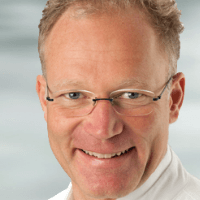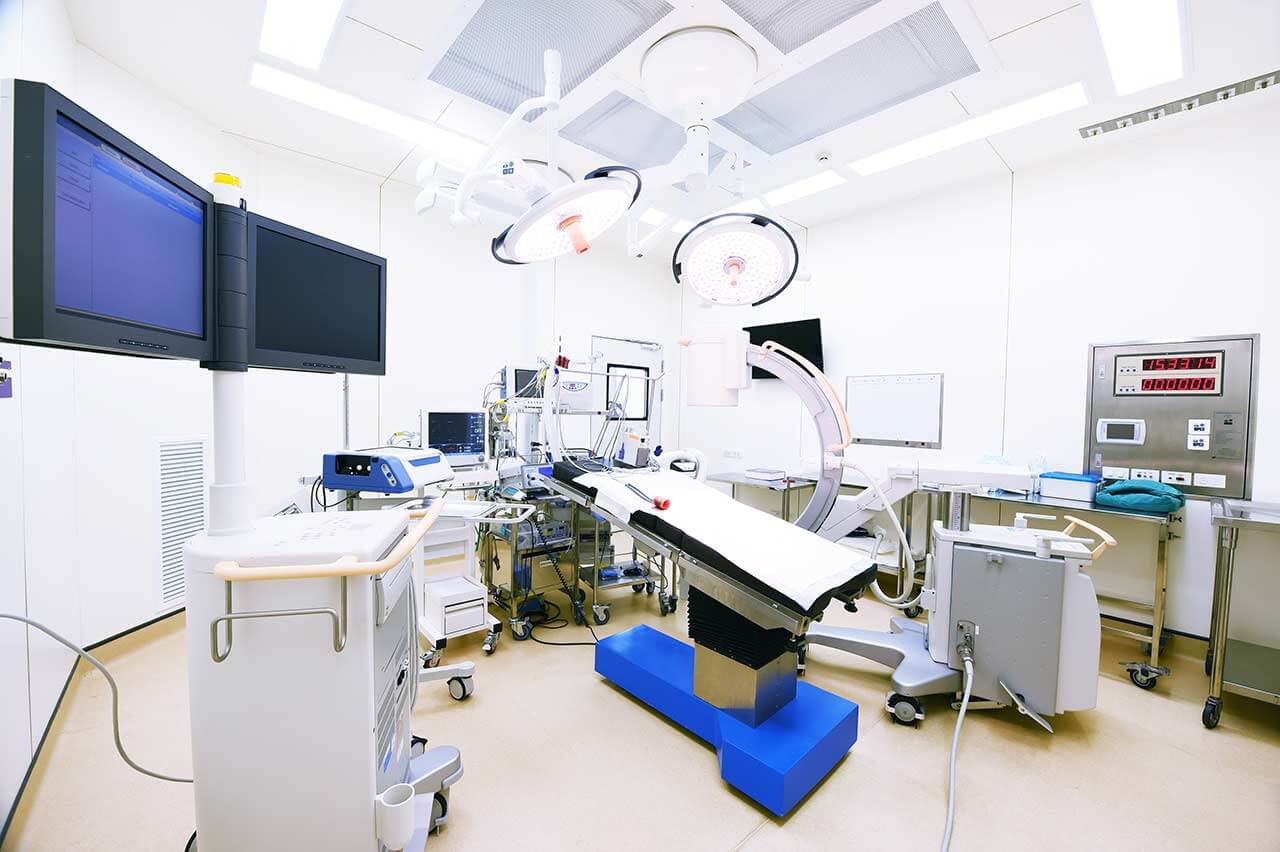
The program includes:
- Initial presentation in the clinic
- clinical history taking
- physical examination
- review of medical records
- laboratory tests:
- complete blood count
- general urine analysis
- biochemical analysis of blood
- indicators of inflammation (CRP, ESR)
- indicators blood coagulation
- abdominal ultrasound
- gastroscopy with biopsy
- analysis of hp (helicobacter pylori)
- resection of gastric polyps
- symptomatic treatment
- control examinations
- the cost of essential medicines and materials
- nursing services
- nutrition recommendations
- full hospital accommodation
- explanation of future recommendations
Required documents
- Medical records
- Esophagogastroduodenoscopy (EGD) (if available)
Service
You may also book:
 BookingHealth Price from:
BookingHealth Price from:
About the department
The Department of General Pediatrics at the University Hospital Bonn offers all the diagnostic and therapeutic options of modern medicine for newborns, young children and adolescents with common pediatric disorders. The department is headed by Prof. Dr. med. Rainer Ganschow.
The department specializes in infectious diseases, respiratory and gastrointestinal diseases, acute and chronic diseases of the nervous system, growth and hormonal disorders, metabolic disorders, rheumatic diseases, kidney and urinary tract diseases, as well as in the immunological and allergic diseases. An experienced and competent team of medical staff, nurses, psychologists and other specialists makes every effort to make the child’s stay in the department as short as possible and at the same time as comfortable as possible.
The service range of the department includes:
- Diagnostics and treatment of allergic reactions and respiratory diseases
- Chronic lung diseases (bronchial asthma, interstitial diseases, cystic fibrosis)
- Allergic diseases (pollinosis, atopic dermatitis, allergies to food and insect venom, urticaria)
- Hyposensibilization (classic long-term, short-term and supersensitive hyposensibilization in allergy to bee and wasp venom)
- Tests for the identification of food intolerance, drug allergies
- Diagnostics and treatment of diseases of the endocrine organs and diabetes mellitus
- Diagnostics and treatment of diseases of the gastrointestinal tract and liver (special focus on liver transplantation in collaboration with the Department of General, Abdominal, Thoracic and Vascular Surgery)
- Digestive diseases
- Chronic abdominal pain
- Celiac disease
- Ulcerative colitis
- Crohn's disease
- Chronic diarrhea, constipation, nausea/vomiting
- Gastroesophageal reflux
- Dysphagia
- Gastritis
- Pancreatitis
- Liver diseases
- Hepatitis B
- Hepatitis C
- Jaundice
- Autoimmune hepatitis
- Biliary atresia
- Fibrosis/cirrhosis before and after liver transplantation
- Diagnostics and treatment of diseases of the immune system
- Diagnostics and treatment of kidney diseases
- Peritoneal dialysis
- Hemodialysis
- Hemofiltration
- Plasmapheresis
- Immunoadsorption
- Kidney transplantation, combined kidney and liver transplantation (within the specialized center)
- Digestive diseases
- Psychological support
- Other medical services
Curriculum vitae
Prof. Dr. med. Rainer Ganschow specializes in the diagnostics and treatment of liver diseases in children and adolescents. Prior to the position at the University Hospital Bonn, the doctor headed the Department of Hepatology and Liver Transplantation in Hamburg, performing more than 30 liver transplants annually. In addition, the field of expertise includes the diagnostics and treatment of infectious diseases, respiratory and gastrointestinal pathologies. The spectrum is also complemented by the diagnostics and treatment of diseases of the nervous system, growth, hormonal disorders, rheumatic, immunological and allergic diseases.
Dr. Ganschow's research focuses mainly on the immunological processes in liver transplantation in children, since there is a risk that the child’s body may reject the transplanted organ by mistaking it for a foreign body. However, he pays special attention to the approaches, which reduce the risk of transplant rejection. Thus, some patients have the opportunity to stop taking immunosuppressants.
Photo of the doctor: (c) Universitätsklinikum Bonn
About hospital
According to the authoritative Focus magazine, the University Hospital Bonn ranks among the top ten medical facilities in Germany!
The hospital was opened on January 1, 2001, although in fact it inherits the medical facility, which operated at the Faculty of Medicine of the University of Bonn. The hospital in Germany combines all the highest standards of modern university medicine of the international level. A highly competent team of experienced physicians, which consists of more than 8,000 employees from various fields, takes care of the patients’ health.
The hospital has 32 specialized departments and 23 institutes, which implement the highest standards of treatment in Germany. On their basis, in addition to the successful clinical activities, the productive research and training of young specialists are carried out. Also, the hospital has 10 intensive care units and more than 30 cutting-edge operating rooms. They are equipped with the advanced surgical, navigation and monitoring systems, which provide sparing and the most effective surgical treatment. The total number of places for hospitalization is 1,250 beds.
The hospital presents all fields of medicine, while many of them are awarded by prestigious German and international certificates. For example, in 2007, the Comprehensive Cancer Center of the hospital became one of the four winners at the nationwide competition among Cancer Centers of Excellence. The research focuses primarily on the clinical genetics and genetic epidemiology, neurology, immunology and infectiology, hepatology and gastroenterology, and diseases of the cardiovascular system. The research findings contribute to the development of new therapeutic methods and overall improvement of treatment in Germany.
The main value for all employees of the hospital in Germany is human health, his individual needs and wishes, therefore, despite the high-tech infrastructure, the focus remains on the human attitude and respect for each patient.
Photo: (с) depositphotos
Accommodation in hospital
Patients rooms
The patients of the University Hospital Bonn live in cozy single, double and triple rooms, designed in bright colors. The standard room furnishing includes a comfortable bed with a remote control, a bedside table, a wardrobe, a table and chairs, as well as a TV and a telephone. Each patient room is equipped with an ensuite bathroom with toilet and shower. The hospital also provides enhanced-comfort rooms.
Meals and Menus
The patients of the hospital are offered tasty and balanced three meals a day: breakfast, lunch and dinner. Every day each meal features three different menus, including a vegetarian one. If you for some reason do not eat all the food, you will be offered an individual menu. Please inform the medical staff about your dietary preferences prior to the treatment.
Further details
Standard rooms include:
Religion
Christian priests are available for the patients at any time. Representatives of other religions may be requested at any time.
Accompanying person
Your companion may stay with you in your room or at a hotel of your choice during the fixed program.
Hotel
You may stay at the hotel during the outpatient program. Our employees will support you for selecting the best option.
The hospital offers a full range of laboratory tests (general, hormonal, tests for infections, antibodies, tumor markers, etc.), genetic tests, various modifications of ultrasound scans, CT scans, MRI and PET / CT, angiography, myelography, biopsy and other examinations. Treatment with medications, endoscopic and robotic operations, stereotaxic interventions is carried out here, modern types of radiation therapy are also used. The hospital offers patients all the necessary therapeutic techniques.
- Surgical treatment of the brain tumors, tumors of spinal cord and spine
- Replacement of all joints, resection arthroplasty
- Deep brain stimulation and vagus nerve stimulation in patients with epilepsy
- Multimodal complex treatment of Parkinson disease
- Thoracic endovascular aortic repair (TEVAR)
These are benign and malignant breast pathologies, malignant tumors of various localizations, neuromuscular diseases, stroke, retinal pathologies and various visual impairments, infertility, autoimmune diseases, epilepsy, coronary artery disease and myocardial infarction, leukemia and other pathologies.
- Ophthalmology
- Epileptology
- Reproductive medicine
- Hematology and oncology
- Neurosurgery
Over 8,000 highly qualified doctors and other employees work at the hospital.





